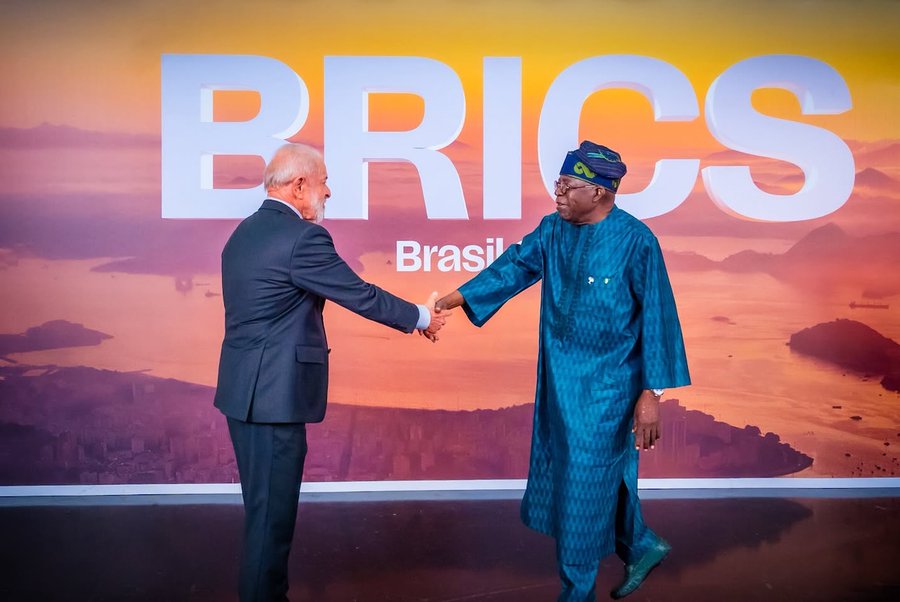President Bola Tinubu has called for a comprehensive review of the current global governance structure, as well as reforms in the financial and healthcare systems, to promote greater equity and inclusion for low-income and emerging economies, particularly in Africa.
At the 17th BRICS Summit held in Rio de Janeiro, Brazil, yesterday, Mr Tinubu highlighted the urgent need to address environmental degradation, the climate crisis, and global healthcare inequalities.
He noted that these challenges contributed to slow growth and widening development gaps.
READ ALSO: Tinubu: Days of empty promises, abandoned projects in Nigeria over
Mr Tinubu, who attended the summit at the invitation of Brazilian President Luiz Inacio Lula da Silva, reaffirmed Nigeria’s support for BRICS’ collective push for fair and inclusive global development.
“Nigeria aligns with the discussions and outcomes of the BRICS summit. The next critical step is to pursue financial restructuring and a thorough reevaluation of the global order,” he said.
Mr Tinubu stressed that although Africa had contributed the least to global carbon emissions, it continued to suffer the most from climate-related consequences.
“We must chart a new course of justice based on fairness, sustainable technology transfer, and accessible financing, so emerging economies can fully benefit from global initiatives,” he said.
The President pointed to Africa’s proactive efforts through initiatives like the African Carbon Market Initiative and the Great Green Wall, expressing confidence that the upcoming COP-30 conference would further galvanise commitment towards a healthier global environment.
“Nigeria cannot remain a passive participant in global decisions concerning financial restructuring, debt relief, climate action, environmental protection, and healthcare. We must be active architects of a future that addresses the specific needs of our youth, who make up 70 per cent of Nigeria’s population,” he said.
Mr Tinubu reaffirmed Nigeria’s long-term development agenda, Vision 2050, and its nationally determined contributions aimed at advancing renewable energy, climate resilience, and universal health coverage.
He also underscored the importance of addressing non-communicable diseases as part of a collective global health priority.
“As we approach COP-30, BRICS should not merely represent a bloc of emerging economies but should stand as a beacon of innovative solutions built on solidarity, self-reliance, sustainability, and shared prosperity,” Mr Tinubu added.
He pledged Nigeria’s continued commitment to strategic partnerships that would foster sustainable and inclusive growth.
The President was accompanied to the summit by Ambassador Yusuf Tuggar, Minister of Foreign Affairs, and Wale Edun, Minister of Finance.
Nigeria was formally admitted as a partner country of BRICS on 17 January 2025 under Brazil’s pro tempore presidency.
READ ALSO: Wike: Tinubu’s projects speak for themselves, critics are politically finished
The new partnership category, established at the 16th BRICS Summit in Kazan, Russia in October 2024, includes Nigeria alongside Belarus, Bolivia, Cuba, Kazakhstan, Malaysia, Thailand, Uganda, and Uzbekistan.
As Africa’s most populous country and one of its largest economies, Nigeria shares key priorities with BRICS, particularly in advancing South-South cooperation and pushing for reforms in the global governance system.



